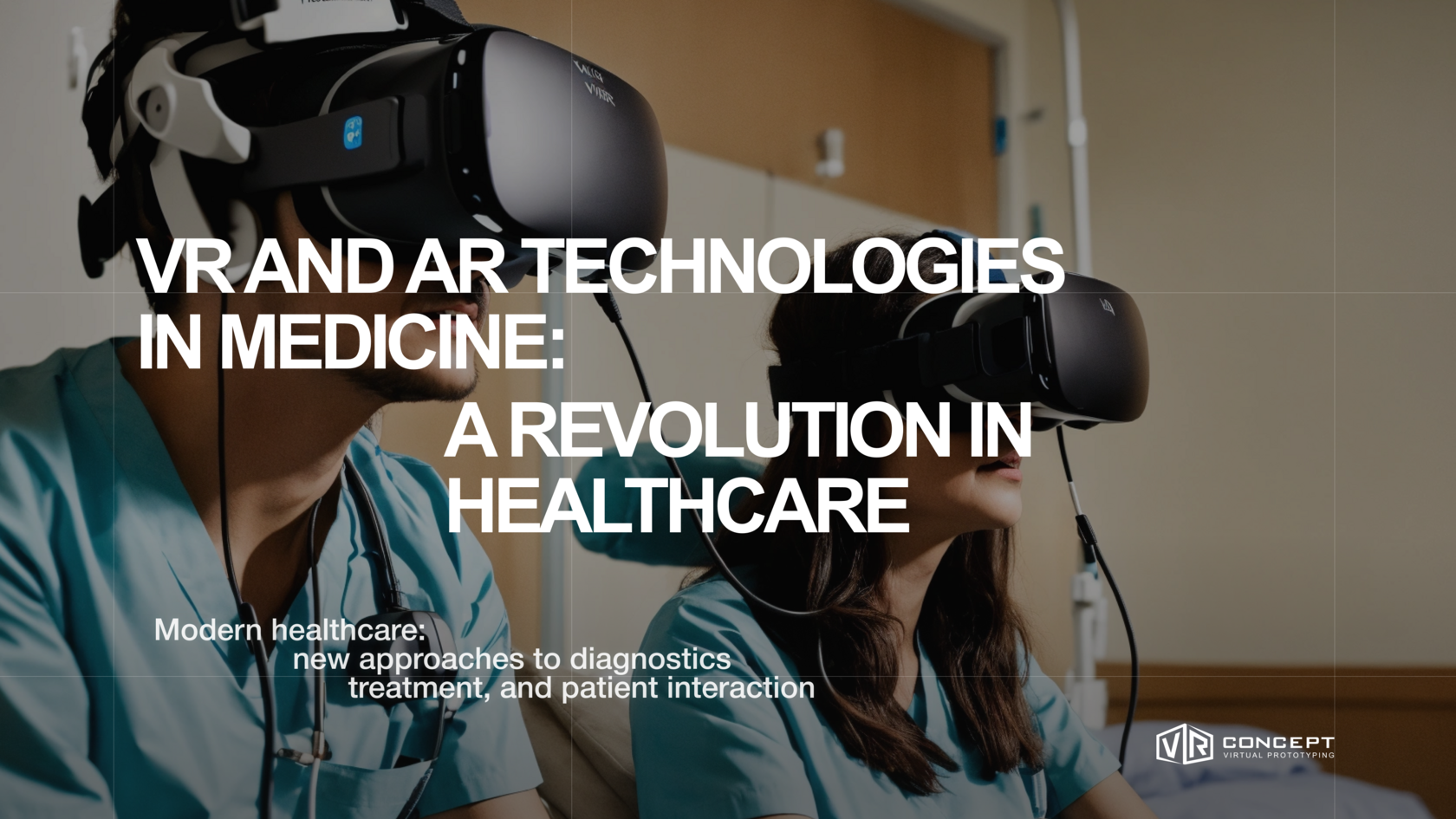Virtual Reality (VR) and Augmented Reality (AR) are transforming modern healthcare, offering new approaches to diagnosis, treatment, and patient engagement. These immersive technologies are increasingly incorporated into medical practices, training environments, and patient care. With the rapid development of devices and applications, VR and AR are expanding possibilities for precision and personalized medicine, revolutionizing healthcare by improving both patient outcomes and healthcare provider efficiency [1][2].
What Are VR and AR Technologies?
VR creates fully immersive virtual environments where users can interact in a simulated space. AR, in contrast, overlays digital information onto the physical world, enhancing the user's perception and interaction with real-world surroundings. Together, these technologies provide powerful tools for visualization, enabling detailed analysis and enhanced understanding of complex medical data [3][4].
Key Benefits of VR and AR in Medicine
- Enhanced Training for Medical Staff: VR allows healthcare providers to simulate procedures in a safe environment, improving skills in a risk-free setting.
- Improved Patient Education and Engagement: VR helps patients understand their conditions and treatments through immersive visualizations.
- Precision in Procedures: AR aids in surgical precision by providing real-time, layered visuals that guide practitioners.
Applications of VR and AR in Medicine
- Medical Training and Education
- VR and AR provide dynamic platforms for medical training, allowing students and professionals to perform complex procedures virtually. For instance, VR Concept, in partnership with Sechenov University, launched a specialized training program focused on developing VR/AR applications for medical education. This 9-month program, comprising 252 hours of instruction, enables participants to design applications for simulating medical procedures, create virtual training environments for skill assessment, and enhance visualization techniques for diagnosis and treatment. The program emphasizes developing VR tools for diagnostics and AR for improved visualization of medical data, supporting decision-making by medical staff.
- Surgical Planning and Guidance
- Surgeons increasingly use VR and AR for preoperative planning and intraoperative guidance. With AR, they can overlay digital models onto patients’ bodies, aligning visuals with anatomy in real-time for enhanced precision. These tools have shown promise in critical care procedures, improving outcomes by assisting surgeons with visualization in real-time [5].
- Patient Therapy and Pain Management
- VR is widely used for pain management, especially in intensive care settings, where it helps distract patients from discomfort during invasive procedures. Additionally, it supports cognitive and physical rehabilitation, aiding patients with motor function recovery through interactive exercises in a virtual space [4].
- Health Digital Twins and Personalized Medicine
- Health Digital Twins (HDTs) represent a new frontier in personalized medicine. An HDT uses AI and XR to create a digital replica of a patient’s organ or body system, allowing doctors to simulate treatments and outcomes before applying them in real life. This model is being applied to various conditions, such as cardiovascular health, to model the heart and predict responses to specific treatments [1][3]. VR Concept is at the forefront of such developments, integrating VR and AR to make HDTs more accessible and applicable in clinical settings.
- Metaverse Applications in Bioinformatics
- In bioinformatics, the integration of VR and the metaverse offers potential for immersive research environments. Through VR, healthcare providers and researchers can visualize and analyze complex biological data, such as anti-cancer peptides, within a virtual environment [4]. VR Concept continues to lead in creating environments where complex molecular structures are rendered in 3D, aiding researchers in drug discovery and other bioinformatics applications.
Challenges and Considerations
Despite the transformative potential, VR and AR in medicine come with challenges:
- Technical Limitations: Some AR applications require precise alignment, which can be hindered by factors like lighting or physical barriers in clinical settings [2].
- Data Security and Privacy: Handling patient data in digital and virtual spaces raises concerns over data privacy and security, especially when connected to cloud services.
- Accessibility and Cost: Advanced VR and AR setups can be costly, limiting access, particularly in resource-strapped healthcare systems.
- Training Requirements: Both healthcare providers and patients need training to use these tools effectively, which can be resource-intensive.
The Future of VR and AR in Medicine
As VR and AR technologies continue to evolve, their applications in medicine will expand, moving towards more advanced, precision-driven models of care. Health Digital Twins, facilitated by VR and AR, will become integral to healthcare, allowing for individualized treatment simulations and predictive diagnostics [1]. VR Concept’s collaboration with Sechenov University exemplifies the growing trend of integrating VR and AR into medical education, preparing a new generation of healthcare professionals adept in these innovative tools.
In conclusion, VR and AR are set to redefine medicine through improved training, precision in procedures, and patient-centered approaches. With ongoing advancements, these technologies will enhance healthcare delivery and patient outcomes, creating a truly immersive, personalized healthcare experience [2][5].
References
- Rudnicka, Z., Proniewska, K., Perkins, M., Pregowska, A. "Cardiac Healthcare Digital Twins Supported by Artificial Intelligence-Based Algorithms and Extended Reality—A Systematic Review." Electronics, 2024. [15+source].
- Anacleto Filho, P.C., Colim, A., Jesus, C., Lopes, S.I., Carneiro, P. "Digital and Virtual Technologies for Work-Related Biomechanical Risk Assessment: A Scoping Review." Safety, 2024. [16+source].
- Marques, L., Costa, B., Pereira, M., Silva, A., Santos, J. "Advancing Precision Medicine: A Review of Innovative In Silico Approaches for Drug Development, Clinical Pharmacology and Personalized Healthcare." Pharmaceutics, 2024. [17+source].
- Danish, S., Khan, A., Dang, L.M., et al. "Metaverse Applications in Bioinformatics: A Machine Learning Framework for the Discrimination of Anti-Cancer Peptides." Information, 2024. [18+source].
- Kanschik, D., Bruno, R.R., Wolff, G., Kelm, M., Jung, C. "Virtual and Augmented Reality in Intensive Care Medicine: A Systematic Review." Annals of Intensive Care, 2023. [19+source].
